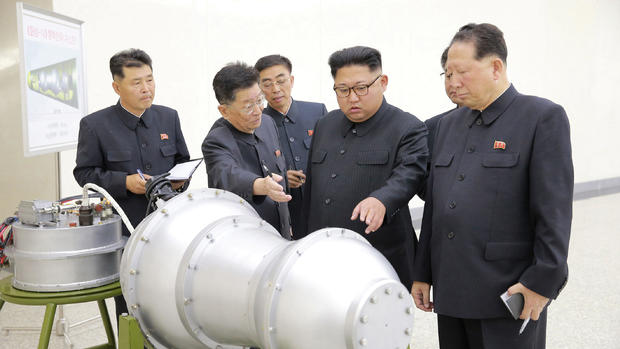U.N. report says member states help North Korea evade sanctions
One month after the U.N. Security Council passed biting sanctions against North Korea in response to the country's latest nuclear test, a U.N. report says that "lax enforcement" has allowed the rogue nation to earn $270 million since February alone.
CBS News obtained a copy of the report on Thursday ahead of its publication Saturday.
In the time since the U.N. released its last report in March, North Korea has created a web of "evolving evasion techniques" involving dozens of member states that "are undermining the goals of the resolutions."
The 111-page midterm report by the U.N.'s "Panel of Experts" details new ways that North Korea skirts the latest round of sanctions, including violations of the arms embargo, "particularly in Africa and the Middle East." It also says the panel is investigating the leasing of North Korean "embassy property for commercial purposes in several countries including Bulgaria, Germany, Poland and Romania."
"If sanctions are not enforced - and there is recognition of that by entities doing business with North Korea - the intended sanctions pressure will not materialize," Hal Eren, who was senior sanctions adviser at the U.S. Department of the Treasury's Office of Foreign Assets Control (OFAC), told CBS News.
Subterfuge related to North Korea's ballistic missile program is present throughout the report. For example, the panel investigated vehicles displayed at the military parade in April 2017 in Pyongyang, including trucks used to transport the Pukguksong-1 ballistic missile. When asked, "China noted that the sales contract requested explicitly that the contract requires 'the buyer to ensure the civilian use of the trucks.'"
The panel also investigated "reported prohibited chemical, ballistic missile and conventional arms cooperation" between Syria and North Korea, including Syrian Scud missile programs and maintenance and repair of Syrian surface-to-air missiles (SAM) air defense systems.
In recent days, the Trump administration has threatened to target countries that are found to be violating the U.N. sanctions against North Korea, including China, with what are called "secondary sanctions."
"A problem with all sanctions efforts is that they're never air-tight, and North Korea and its supporters are adept and well-practiced at circumventing them. Simply adding new sanctions without tougher enforcement won't do much," said Matthew Waxman, faculty chair of the program on Law and National Security at Columbia Law School.
"However, secondary sanctions, by directly punishing those who do business with North Korea, could significantly tighten the economic screws," Waxman said.
Some analysts believe that the report itself can serve a purpose in "naming and shaming" the countries involved. Hagar Hajjar Chemali, who was spokesperson at the U.S. Treasury Department, told CBS News that "naming unleashes market forces and tells investors in countries cited that there is a high risk," which serves as "natural enforcement."
Ambassadors involved in the U.N. negotiations on North Korea see secondary sanctions as an alternative to military action.
"The U.K wants a robust further sanctions resolution to give a chance for diplomacy to end this crisis," British Ambassador Matthew Rycroft told CBS News.
Despite holes in enforcement, France's Ambassador Francois Delattre told CBS News, "the stronger the sanctions we impose on North Korea, the stronger our hand in promoting a political solution."





